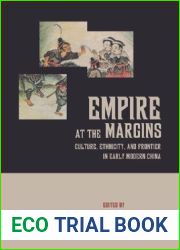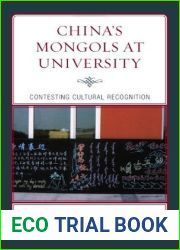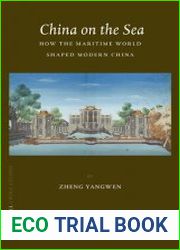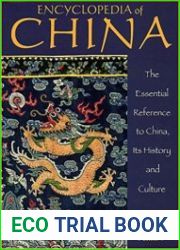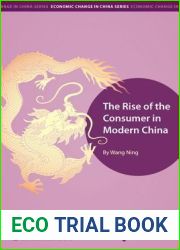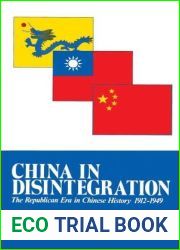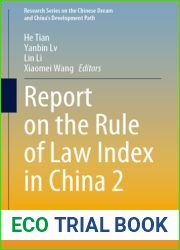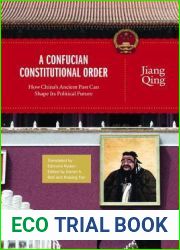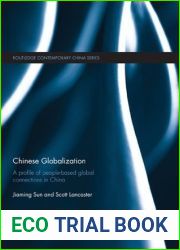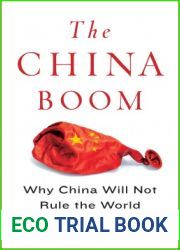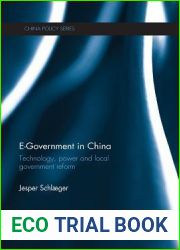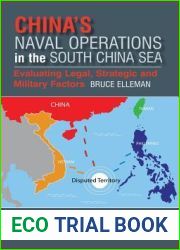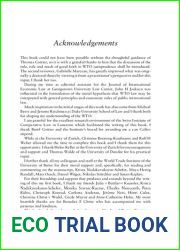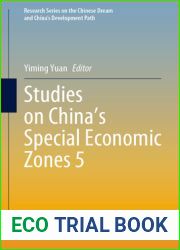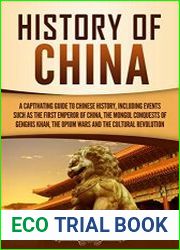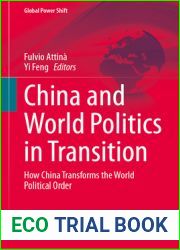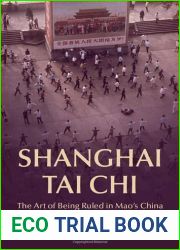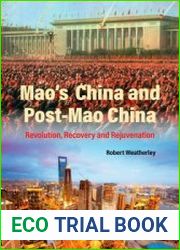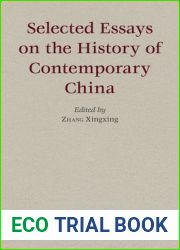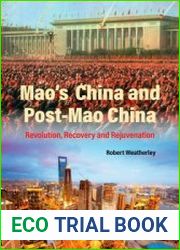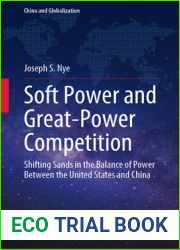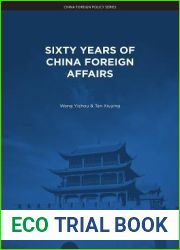
BOOKS - China and the WTO: Why Multilateralism Still Matters

China and the WTO: Why Multilateralism Still Matters
Author: Petros C. Mavroidis
Year: January 5, 2021
Format: PDF
File size: PDF 1.1 MB
Language: English

Year: January 5, 2021
Format: PDF
File size: PDF 1.1 MB
Language: English

China and the WTO: Why Multilateralism Still Matters As the world grapples with the challenges of global trade disputes, the book "China and the WTO: Why Multilateralism Still Matters" provides a timely examination of the conflicts surrounding China's participation in the World Trade Organization (WTO) and offers fresh ideas for lasting solutions. The authors, Petros Mavroidis and Andre Sapir, argue that the WTO's ability to mitigate tensions arising from China's size and rapid growth depends on judicious reforms that accommodate China's unique geopolitical position. The book begins by highlighting China's accession to the WTO in 2001 as a significant step forward in international cooperation. However, it also acknowledges that China's participation has been fraught with tension, particularly with the United States, due to concerns over unfair trade advantages and forced technology transfer. The authors contend that these tensions are rooted in the mismatch between the WTO framework and China's economic model, which has led to a lack of confidence in the system. To address these issues, Mavroidis and Sapir propose specific reforms to the WTO's implicit principles, focusing on two core complaints: the benefits enjoyed by Chinese state-owned enterprises (SOEs) and the imposition of forced technology transfer on foreign companies as a condition for accessing the Chinese market.
Китай и ВТО: почему мультилатерализм все еще имеет значение В то время как мир борется с проблемами глобальных торговых споров, книга «Китай и ВТО: почему мультилатерализм все еще имеет значение» обеспечивает своевременное изучение конфликтов, связанных с участием Китая во Всемирной торговой организации (ВТО), и предлагает свежие идеи для долгосрочных решений. Авторы, Петрос Мавроидис и Андре Сапир, утверждают, что способность ВТО смягчить напряженность, возникающую из-за размеров и быстрого роста Китая, зависит от разумных реформ, которые учитывают уникальное геополитическое положение Китая. Книга начинается с того, что подчеркивается вступление Китая в ВТО в 2001 году как значительный шаг вперед в международном сотрудничестве. Тем не менее, он также признает, что участие Китая было чревато напряженностью, особенно с Соединенными Штатами, из-за опасений по поводу несправедливых торговых преимуществ и принудительной передачи технологий. Авторы утверждают, что эта напряженность коренится в несоответствии между рамками ВТО и экономической моделью Китая, что привело к отсутствию доверия к системе. Для решения этих проблем Мавроидис и Сапир предлагают конкретные реформы неявных принципов ВТО, сосредоточив внимание на двух основных жалобах: преимуществах, которыми пользуются китайские государственные предприятия (ГП), и навязывании принудительной передачи технологий иностранным компаниям в качестве условия доступа на китайский рынок.
Chine et OMC : pourquoi le multilatéralisme est encore important Alors que le monde est aux prises avec les problèmes des différends commerciaux mondiaux, le livre « La Chine et l'OMC : pourquoi le multilatéralisme est encore important » fournit une étude opportune des conflits liés à la participation de la Chine à l'Organisation mondiale du commerce (OMC) et propose de nouvelles idées pour des solutions durables. s auteurs, Petros Mavroydis et André Sapir, affirment que la capacité de l'OMC à atténuer les tensions résultant de la taille et de la croissance rapide de la Chine dépend de réformes raisonnables qui tiennent compte de la situation géopolitique unique de la Chine. livre commence par souligner que l'adhésion de la Chine à l'OMC en 2001 est un pas important dans la coopération internationale. Toutefois, il reconnaît également que la participation de la Chine a été source de tensions, en particulier avec les États-Unis, en raison des craintes d'avantages commerciaux injustes et de transferts de technologie forcés. s auteurs affirment que ces tensions sont enracinées dans une incohérence entre le cadre de l'OMC et le modèle économique chinois, ce qui a entraîné un manque de confiance dans le système. Pour résoudre ces problèmes, Mavroïdis et Sapir proposent des réformes concrètes des principes implicites de l'OMC, en se concentrant sur deux principaux griefs : les avantages dont bénéficient les entreprises d'État chinoises et l'imposition de transferts de technologie forcés aux entreprises étrangères comme condition d'accès au marché chinois.
China y la OMC: por qué el multilateralismo todavía importa Mientras el mundo lucha contra los problemas de las controversias comerciales mundiales, el libro «China y la OMC: por qué el multilateralismo sigue importando» proporciona un estudio oportuno de los conflictos relacionados con la participación de China en la Organización Mundial del Comercio (OMC) y ofrece ideas frescas para soluciones duraderas. autores, Petros Mavroidis y André Sapir, sostienen que la capacidad de la OMC para mitigar las tensiones derivadas del tamaño y el rápido crecimiento de China depende de reformas inteligentes que tengan en cuenta la posición geopolítica única de China. libro comienza destacando la entrada de China en la OMC en 2001 como un avance significativo en la cooperación internacional. n embargo, también reconoce que la participación de China ha sido tensa, en particular con los Estados Unidos, debido a la preocupación por las ventajas comerciales injustas y la transferencia forzosa de tecnología. autores sostienen que esas tensiones tienen su origen en la disparidad entre el marco de la OMC y el modelo económico de China, que ha dado lugar a una falta de confianza en el sistema. Para resolver estos problemas, Mavroidis y Sapir proponen reformas concretas a los principios implícitos de la OMC, centrándose en dos quejas principales: las ventajas que disfrutan las empresas estatales chinas (GP) y la imposición de la transferencia forzosa de tecnología a empresas extranjeras como condición para acceder al mercado chino.
China e OMC: por que o multilateralismo ainda importa Enquanto o mundo luta contra as disputas comerciais globais, o livro «China e OMC: por que o multibilateralismo ainda importa» fornece um estudo oportuno dos conflitos relacionados com a participação da China na Organização Mundial do Comércio (OMC) e oferece ideias recentes para soluções duradouras. Os autores, Petros Mavroidis e André Sapir, afirmam que a capacidade da OMC de aliviar as tensões decorrentes do tamanho e rápido crescimento da China depende de reformas razoáveis que levem em conta a posição geopolítica única da China. O livro começa enfatizando a adesão da China à OMC em 2001 como um passo significativo na cooperação internacional. No entanto, ele também reconhece que a participação da China foi um risco de tensão, especialmente com os Estados Unidos, devido a preocupações com vantagens comerciais injustas e transferência forçada de tecnologia. Os autores afirmam que essas tensões se baseiam na discrepância entre o quadro da OMC e o modelo econômico da China, o que levou à falta de confiança no sistema. Para resolver estes problemas, Mavroidis e Sapir propuseram reformas específicas aos princípios implícitos da OMC, focando duas queixas principais: as vantagens que as empresas estatais chinesas (SG) têm e a imposição de transferências forçadas de tecnologia a empresas estrangeiras como condição para o acesso ao mercado chinês.
Cina e WTO: perché il multi-bilateralismo è ancora importante Mentre il mondo combatte i problemi delle controversie commerciali globali, il libro «Cina e WTO: perché il multilateralismo è ancora importante» fornisce uno studio tempestivo dei conflitti legati alla partecipazione della Cina all'Organizzazione mondiale del commercio (WTO) e offre idee recenti per soluzioni a lungo termine. Gli autori, Petros Mavroidis e Andre Sapir, sostengono che la capacità dell'WTO di alleviare le tensioni derivanti dalle dimensioni e dalla rapida crescita della Cina dipende da riforme intelligenti che tengano conto della situazione geopolitica unica della Cina. Il libro inizia sottolineando l'adesione della Cina all'WTO nel 2001 come un significativo passo avanti nella cooperazione internazionale. Tuttavia, riconosce anche che la partecipazione della Cina ha rischiato tensioni, soprattutto con gli Stati Uniti, a causa del timore di vantaggi commerciali ingiustificati e di trasferimenti forzati di tecnologia. Gli autori sostengono che queste tensioni si fondano nella discrepanza tra il quadro dell'WTO e il modello economico della Cina, che ha portato alla mancanza di fiducia nel sistema. Per affrontare questi problemi, Mavroidis e Sapir propongono riforme concrete dei principi impliciti dell'WTO, concentrandosi su due lamentele principali: i vantaggi di cui beneficiano le aziende statali cinesi e l'imposizione del trasferimento forzato di tecnologia alle aziende straniere come condizione per l'accesso al mercato cinese.
China und die WTO: Warum Multilateralismus immer noch wichtig ist Während die Welt mit den Problemen globaler Handelsstreitigkeiten zu kämpfen hat, bietet das Buch „China und die WTO: Warum Multilateralismus immer noch wichtig ist“ eine zeitnahe Auseinandersetzung mit den Konflikten um Chinas Beteiligung an der Welthandelsorganisation (WTO) und bietet frische Ideen für langfristige Lösungen. Die Autoren, Petros Mavroidis und André Sapir, argumentieren, dass die Fähigkeit der WTO, Spannungen abzubauen, die sich aus Chinas Größe und schnellem Wachstum ergeben, von intelligenten Reformen abhängt, die Chinas einzigartiger geopolitischer Position Rechnung tragen. Das Buch beginnt mit der Betonung des Beitritts Chinas zur WTO im Jahr 2001 als bedeutender Fortschritt in der internationalen Zusammenarbeit. Er räumt jedoch auch ein, dass Chinas Engagement mit Spannungen behaftet war, insbesondere mit den Vereinigten Staaten, da Bedenken hinsichtlich unfairer Handelsvorteile und erzwungener Technologietransfers bestehen. Die Autoren argumentieren, dass diese Spannungen auf der Diskrepanz zwischen dem WTO-Rahmen und dem chinesischen Wirtschaftsmodell beruhen, was zu einem Mangel an Vertrauen in das System geführt hat. Um diese Probleme zu lösen, schlagen Mavroidis und Sapir konkrete Reformen der impliziten WTO-Grundsätze vor, die sich auf zwei Hauptbeschwerden konzentrieren: die Vorteile, die chinesische Staatsunternehmen genießen, und die Auferlegung eines erzwungenen Technologietransfers an ausländische Unternehmen als Bedingung für den Zugang zum chinesischen Markt.
סין וה ־ WTO: מדוע המולטילטריאליזם עדיין חשוב בעוד העולם מתמודד עם האתגרים של סכסוכי סחר גלובליים, הספר ”סין והווטו: מדוע המולטילטריאליזם עדיין חשוב” מספק מחקר בעתו של סכסוכים הקשורים להשתתפותה של סין בארגון הסחר העולמי (WTO) ומציע רעיונות טריים לפתרונות לטווח ארוך. המחברים, פטרוס מאברוידיס ואנדרה ספיר, טוענים כי יכולתו של ארגון ה-WTO למתן את המתחים הנובעים מגודלה של סין וצמיחתה המהירה תלויה ברפורמות הגיוניות שלוקחות בחשבון את מעמדה הגיאו-פוליטי הייחודי של סין. הספר מתחיל בכך שהוא מדגיש את כניסתה של סין ל-WTO בשנת 2001 כצעד משמעותי קדימה בשיתוף פעולה בינלאומי. עם זאת, הוא גם מכיר בכך שהמעורבות הסינית הייתה רצופת מתחים, במיוחד עם ארצות הברית, על רקע חששות לגבי יתרונות סחר לא הוגנים והעברות טכנולוגיה כפויות. המחברים טוענים שהמתחים הללו מושרשים בחוסר התאמה בין מסגרת ה-WTO והמודל הכלכלי של סין, מה שהוביל לחוסר אמון במערכת. כדי לטפל בנושאים אלה, מאברוידיס וספיר מציעים רפורמות ספציפיות לעקרונות WTO מרומזים, תוך התמקדות בשתי תלונות עיקריות: היתרונות שמהם נהנים מפעלים בבעלות מדינה סינית (SOEs) והטלת העברות טכנולוגיות כפויות על חברות זרות כתנאי לגישה לשוק הסיני.''
Çin ve DTÖ: Neden Çok Taraflılık Hala Önemli Dünya, küresel ticaret anlaşmazlıklarının zorluklarıyla boğuşurken, "Çin ve DTÖ: Neden Çok Taraflılık Hala Önemli" kitabı, Çin'in Dünya Ticaret Örgütü'ne (DTÖ) katılımı ile ilgili çatışmaların zamanında incelenmesini sağlar ve uzun vadeli çözümler için yeni fikirler sunar. Yazarlar Petros Mavroidis ve André Sapir, DTÖ'nün Çin'in büyüklüğü ve hızlı büyümesinden kaynaklanan gerilimleri azaltma yeteneğinin, Çin'in benzersiz jeopolitik konumunu dikkate alan mantıklı reformlara bağlı olduğunu savunuyor. Kitap, Çin'in 2001 yılında DTÖ'ye girmesini uluslararası işbirliğinde önemli bir adım olarak vurgulayarak başlıyor. Yine de, Çin'in katılımının, özellikle ABD ile haksız ticaret avantajları ve zorla teknoloji transferleri konusundaki endişeler nedeniyle gerginliklerle dolu olduğunu da kabul ediyor. Yazarlar, bu gerilimlerin DTÖ çerçevesi ile Çin'in ekonomik modeli arasındaki uyumsuzluğa dayandığını ve bunun da sisteme güven eksikliğine yol açtığını savunuyor. Bu sorunları ele almak için Mavroidis ve Sapir, iki ana şikayete odaklanarak DTÖ ilkelerini örtbas etmek için özel reformlar önermektedir: Çin kamu iktisadi teşebbüslerinin (KİT'ler) yararlandığı faydalar ve Çin pazarına erişimin bir koşulu olarak yabancı şirketlere zorunlu teknoloji transferlerinin dayatılması.
الصين ومنظمة التجارة العالمية: لماذا لا تزال تعددية الأطراف مهمة بينما يتصارع العالم مع تحديات النزاعات التجارية العالمية، يقدم كتاب «الصين ومنظمة التجارة العالمية: لماذا لا تزال تعددية الأطراف مهمة» دراسة في الوقت المناسب للصراعات المتعلقة بمشاركة الصين في منظمة التجارة العالمية (WTO) ويقدم أفكارًا جديدة لحلول طويلة الأجل يجادل المؤلفان، بيتروس مافرويديس وأندريه سابير، بأن قدرة منظمة التجارة العالمية على تخفيف التوترات الناشئة عن حجم الصين والنمو السريع تعتمد على إصلاحات معقولة تأخذ في الاعتبار الموقف الجيوسياسي الفريد للصين. يبدأ الكتاب بتسليط الضوء على انضمام الصين إلى منظمة التجارة العالمية في عام 2001 كخطوة مهمة إلى الأمام في التعاون الدولي. ومع ذلك، فهو يقر أيضًا بأن التدخل الصيني كان محفوفًا بالتوترات، لا سيما مع الولايات المتحدة، بشأن المخاوف بشأن المزايا التجارية غير العادلة وعمليات نقل التكنولوجيا القسرية. يجادل المؤلفون بأن هذه التوترات متجذرة في عدم التوافق بين إطار منظمة التجارة العالمية والنموذج الاقتصادي للصين، مما أدى إلى عدم الثقة في النظام. لمعالجة هذه القضايا، يقترح مافرويديس وسابير إصلاحات محددة لمبادئ منظمة التجارة العالمية الضمنية، مع التركيز على اثنين من المظالم الرئيسية: الفوائد التي تتمتع بها الشركات الصينية المملوكة للدولة (SOEs) وفرض عمليات نقل التكنولوجيا القسرية إلى الشركات الأجنبية كشرط للوصول إلى السوق الصينية.
중국과 WTO: 다자주의가 여전히 중요한 이유: 세계 무역 분쟁의 어려움으로 세계가 어려움을 겪고있는 동안, "중국과 WTO: 다자주의가 여전히 중요한 이유" 라는 책은 중국의 세계 무역기구 (WTO) 참여 및 장기 솔루션을위해 저자 Petros Mavroidis와 André Sapir는 중국의 규모와 빠른 성장으로 인해 발생하는 긴장을 완화하는 WTO의 능력은 중국의 독특한 지정 학적 입장을 고려한 합리적인 개혁에 달려 있다고 주장한다. 이 책은 2001 년 중국이 WTO에 진입 한 것을 국제 협력의 중요한 진전으로 강조함으로써 시작됩니다. 그러나 그는 또한 불공정 한 거래 이점과 강제 기술 이전에 대한 우려에 대해 중국의 개입이 특히 미국과의 긴장으로 가득 차 있음을 인정합니다. 저자들은 이러한 긴장이 WTO 체제와 중국의 경제 모델 사이의 불일치에 뿌리를두고 있으며, 이로 인해 시스템에 대한 신뢰가 부족하다고 주장했다. 이러한 문제를 해결하기 위해 Mavroidis와 Sapir는 두 가지 주요 불만에 중점을 둔 WTO 원칙을 암시하기위한 구체적인 개혁을 제안합니다. 중국 시장.
中國和世貿組織:為何多邊主義仍然重要。當世界面對全球貿易爭端的挑戰時,《中國和世貿組織:為什麼多邊主義仍然重要》一書及時研究了中國參加世界貿易組織(世貿組織)的沖突,並提供了持久解決辦法的新思路。作者Petros Mavroidis和André Sapir認為,世貿組織緩解中國規模和快速增長帶來的緊張局勢的能力取決於考慮到中國獨特地緣政治地位的明智改革。該書首先強調了中國於2001加入 WTO,這是國際合作的重要一步。不過,他還承認,由於擔心不公平的貿易優勢和強迫技術轉讓,中國的參與充滿了緊張局勢,特別是與美國的緊張關系。作者認為,這種緊張關系植根於WTO框架與中國經濟模式之間的不一致,導致對該體系缺乏信心。為了解決這些問題,Mavroidis和Sapir提出了對WTO隱含原則的具體改革,重點關註兩個主要抱怨:中國國有企業享有的利益,以及將強迫技術轉讓給外國公司作為進入中國市場的條件。










